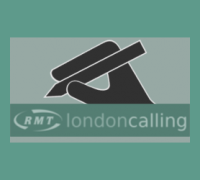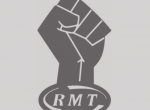One of RMT's equality reps emailed me a few questions for a course he is doing. I thought it might be worth sharing the questions and my replies with website readers.
1. What do you think are the key equality issues in the workplace?
Super-exploitation of ethnic minority and immigrant workers eg. in cleaning and catering grades. Abuse and assault of staff aggravated by prejudice by a small minority of passengers eg. homophobic comments, racist assaults - and management's repeated failure to protect staff adequately. Bullying of gay staff (although things have improved a lot, we still get reports of eg. homophobic graffiti on gay staff's lockers). Sexual harassment and management's inadequate handling of it. Prejudiced view that part-time staff are not as committed to the job. Bullying, mistreatment and even unfair dismissal of sick and disabled staff. Lack of provision for disabled staff at many workplaces. Managers refusing to accept sick notes from certain countries, causing racist discrimination against some staff who fall sick when visiting family overseas. The persistent notion that railway work is men's work. Shift work organised around outdated notions eg. without regard to caring responsibilities. Flexible working legislation being toothless, and management using it to divide the workforce and spread resentment. Lack of childcare provision. Not enough paid dependants' and parental leave. Unacceptable management treatment of pregnant women and new mothers/fathers. Performance-related pay, which discriminates against those with caring responsibilties. Management pretending to care about equalities by eg. setting up staff network groups and increasing diversity within management grades, but in reality allowing inequality to persist for workers.
2. How do you see the role of equality rep?
To support members who have been subject to any of the unequal treatments listed above - arranging representation etc. To ensure that information is available to assist members. To recognise that wherever there is an individual case, there is a collective issue, so to raise the issue both through the machinery of negotiation and amongst members (eg. if one woman has been sexually harassed, it is possible that others have too, so there is a need for a campaign against sexual harassment and for the issue to be raised with the employer). To stress not only diversity but unity - that fighting inequality benefits all workers. To encourage equalities activism, getting members involved in campaigning rather than just doing things *for* the members. To organise action up to and including industrial action against inequality. To challenge unacceptable comments and behaviour at work and encourage others to do so. To challenge inequality within the union. To organise events and activities that promote equality and get workers who face discrimination together for mutual support and self-organisation. To promote political education about inequality and equality. To encourage and support members of under-represented groups to get active in the union, including - but not limited to - taking up union posts. To look at union campaigns and slogans and ensure that they are not discriminatory or divisive eg. that they attack employers for being employers, not for being 'foreign'. To promote discussion within the union on equalities issues, including encouraging the union to develop a distinct workers' agenda for equality rather than simply tailing the employers' fake equalities agenda.
3. How can the equality rep help union organisation in the workplace?
An active, visible equality rep will show members and potential members that the union takes equalities seriously. Organisations tend to reproduce themselves in their own image, so the greater racial/gender/etc diversity amongst union activists, the more diverse the union's appeal to workers. Equality reps can identify ways in which the union's organisation strategies can better address some groups of workers eg. producing recruitment materials in different languages or in Braille. The union needs to turn members into activists, and an effective equality rep can try to ensure that some obstacles to this are removed. An equality rep can identify measures that the union could take to increase participation amongst disadvantaged groups eg. meetings in physcially accessible venues, assistance with childcare to enable attendance at events. Union organisation is stronger when prejudices are not allowed to divide the workforce, so the equality rep's role in challenging prejudice strengthens union organisation.
- Janine's blog
- 3631 reads





